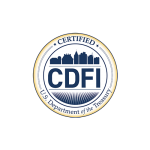
In today’s volatile environment it is more important than ever to manage your money carefully. Making a financial mistake can cost you dearly. Financial mistakes are not just a loss of money but also can be the loss of an opportunity to gain. Here are 7 common financial mistakes that you could be making.
No matter what you earn, there are probably financial mistakes that you’re making. Financial mistakes can be hard to bounce back from and can even take months or even years to fix. That’s why avoiding costly money mistakes or credit mistakes can save you money, time and stress.
Here are 7 common financial mistakes people make and ways to address them.
1. Getting Behind on Your Payments
Getting behind on rent, mortgage or car payments can create a negative cycle quickly. Once you are behind it can be a hard cycle to break. A missed payment results in paying late fees and penalties. It can also damage your credit score, which could affect your finances in the future.
First make it a priority to catch up on your late payments. Then take a critical look at your spending, budgeting or income issues that have caused you to fall behind. Then work to stick to your budget and work to stay on track.
2. Overusing Credit Cards
One of the most common financial mistakes is overusing your credit cards. If you are using a credit card to cover shortfalls, you could quickly find yourself in a downward spiral. It is just too easy to increase your debt once you start relying on your credit cards.
Having a credit card is important when you are trying to build a credit history, but a high credit can make it to easy to over spend. Minimum payments only cover only your interest. Studies have shown that people tend to spend more money when they are paying with credit. Only use a credit card when you know you have the funds available to cover it within a set time.
If you get over your head, consider a credit card with a low balance transfer interest rate to pay down balances. Also try to find a card with a solid rewards program and a reasonable interest rate to use for everyday purchases while paying it off every month to improve your credit score.

3. Not Budgeting
Not planning is one of the most common financial mistakes. Have you heard the old adage -failing to plan is planning to fail? Without knowing where your money is coming from, and how you are spending it, how you can you make significant changes to build your savings funds?
In order to control of your finances, you must begin to budget and start making sensible allocation of your resources. A strong budget helps ensure you’re taking care of your needs and living within your means, as well as allocating funds to your wants, debt repayment and investments in your future.
One good rule of thumb to use when establishing a budget is the 50/30/20 rule:
- 50% for needs (housing, car, healthcare, etc.)
- 30% for wants (entertainment, etc.)
- 20% to savings, debt repayment and investments
Adjust accordingly depending on your available income, financial goals, and stage of your career. Remember flexibility is important.
4. Not Keeping a Sufficient Emergency Fund
Crises are likely to arise in everyone’s lives, so it is better to be prepared. Setting aside an emergency fund should be your first financial objective. Life happens, and things don’t always go to plan. With that in mind it is important to build up an emergency fund to cover the unexpected. Depending on what you are earning this could be anywhere from three to six months of living expenses.
Everyone needs an emergency fund, but how much is set aside is different for each individual. A person with a good income, employment, and expenses might be fine with only one month’s expenses in their emergency fund. Whereas someone who’s self-employed might need six months’ worth of expenses or more in their emergency fund.
.
5. Poor Tax Planning
If your income is from a W-2 paycheck, it’s easy to do your taxes. When you are self-employed or earn money from rental property, mutual funds, private REITs, or private equity funds, it becomes more complicated. Now you must set aside funds for estimated quarterly taxes. Cash flow issues may make this difficult so many entrepreneurs can find themselves in a difficult situation come tax time.
The more money you make, the more you need to pay attention to tax planning. Get expert assistance from qualified accountants and tax strategists who are specialized in working with business owners and the self-employed. It’s an investment that will pay-off immediately in the form of lower tax bills and lower audit odds.

6. Having No Plan to Pay down Debt
Debt creates a lot of stress and puts strain on personal relationships. Paying only the regularly scheduled installments is costly and can extend your payments into years. Having no debt plan could be one of your biggest financial mistakes.
Begin by reducing your purchases and expenses, and set aside more funds for paying off debt. Pay off the highest interest rate account first. Work to pay off your credit card expenses in full each month.
If you feel underwater seek out advise. Research free resources for managing debt from governments and non-profit consumer support agencies.
7. Not Paying Attention To Your Credit Score
You should always be aware of your credit score and work to keep it as high as possible. A high credit score will make it easier to obtain a car loan or a mortgage. It also helps get you the most favorable interest rates.
However, it is not something that you can improve overnight. It takes time and effort to keep your credit score high. Keep a close eye on your score, watch for any errors and address them promptly. Minimize any outstanding balances and pay your bills on time.
Final thoughts
These 7 common financial mistakes derail many people from getting on a strong financial footing. They can be overcome by applying good planning and a disciplined approached to spending.
In the current economic condition, most households are being forced to tighten their belts. Begin reducing overspending by tracking down your small expenses first, then moving on to the big ones. Finally, make a strong commitment pay your saving account first and resist adding any new debts.





